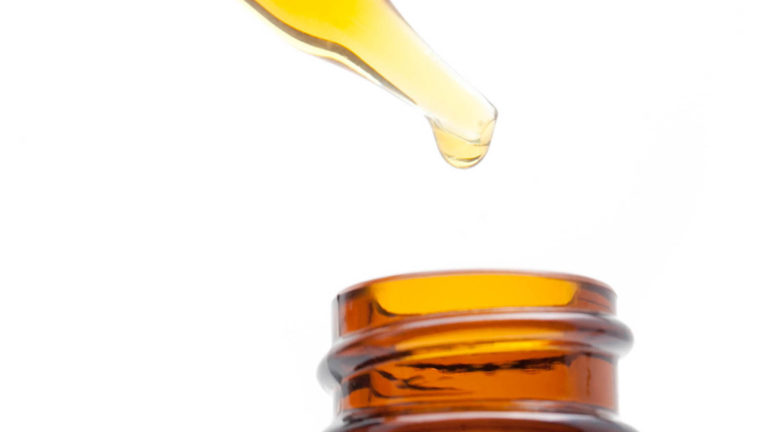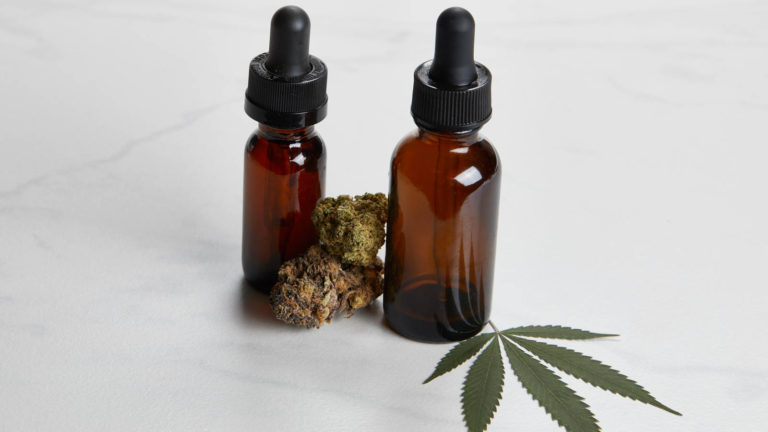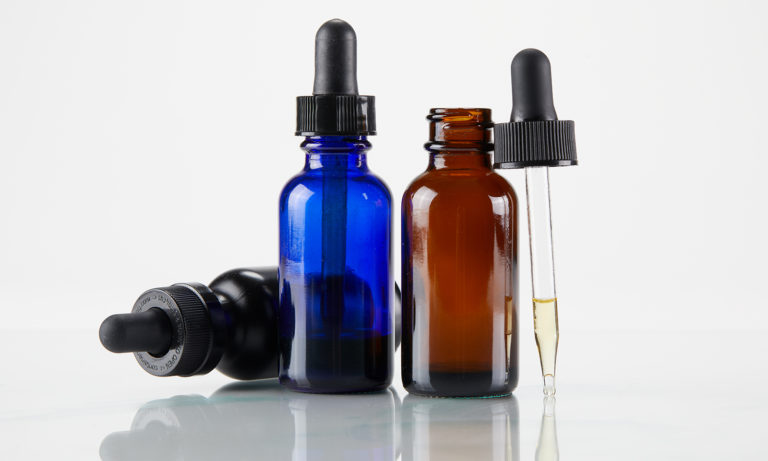Both CBD derived from cannabis and hemp is legal in Michigan. CBD oil is prohibited, however, from being marketed as a dietary supplement or used as an additive in food or beverage products following current FDA regulations.
Hemp and CBD derived from hemp became formally legalized with the enactment of the Michigan Industrial Hemp Research and Development Act in January 2019.
Cannabis became legal for medical purposes in 2008 under the Michigan Compassionate Care Initiative. Michigan also legalized cannabis for adult use in November 2018 under The Michigan Regulation and Taxation of Marihuana Act. CBD derived from cannabis is legal for all Michigan residents, although it is subject to regulations.
The office of Michigan Licensing and Regulatory Affairs recently released guidelines for CBD products.
What is CBD?
CBD is a non-intoxicating cannabinoid found in cannabis and the second-most prominent in the plant after THC, which is mostly responsible for producing an intoxicating high. CBD can be sourced either from marijuana or hemp plants and has a wide range of potential therapeutic benefits.
 Photo by: Gina Coleman/Weedmaps
Photo by: Gina Coleman/WeedmapsImage lightbox

To date, researchers have identified a number of potential applications linked to CBD, including anti-inflammatory, analgesic, anti-anxiety, and anti-seizure properties. Further, the chemical has shown promise in treating numerous health conditions, including seizure disorders, mood disorders such as depression, anxiety, and psychosis, chronic pain, and many more.
Most raw cannabis strains on the market today contain small amounts of CBD, especially compared with THC. But since the cannabinoid has gained considerable attention for its wide range of purported therapeutic benefits, more high-CBD strains have recently been cultivated.
Why is CBD sometimes illegal?
All types of cannabis, including hemp strains that don't produce enough THC to cause intoxication, were considered illegal under the Federal Controlled Substances Act of 1970. The law categorized all cannabis as Schedule 1, which defined the plant as a highly addictive substance with a high potential for abuse and no accepted medical use.
The 2018 Farm Bill re-classified hemp as an agricultural commodity and made its cultivation federally legal. Further, the act removed some forms of cannabis from Schedule 1 status by creating a legal distinction between hemp and marijuana. Hemp is cannabis with less than 0.3% THC, and marijuana refers to cannabis with more than 0.3% THC. This distinction in federal law effectively legalized CBD that is derived from cannabis with less than 0.3% THC, as long as it has been cultivated according to federal and state regulations.
The 2018 Farm Bill legislation does not mean that CBD derived from hemp is universally legal throughout the United States. According to the Farm Bill, the Food and Drug Administration (FDA) has the power to regulate CBD product labeling, including therapeutic claims and the use of CBD as a food additive.
The FDA has declared that even hemp-derived CBD may not legally be added to food and beverages, or marketed as a dietary supplement. Although the organization has begun to re-evaluate some of its stances on legal CBD products, the FDA has not revised its regulations. The agency also has been strict in its position against any labeling that could be perceived as a medical claim about CBD.
In addition to the federal regulation of CBD, the Farm Bill also gave states the option to regulate and prohibit the cultivation and commerce of CBD. States may regulate CBD in food, beverages, dietary supplements, and cosmetic products independently, even before the FDA finalizes its policies.
Michigan CBD laws
CBD derived from hemp became formally legalized In January 2019 following the enactment of the Michigan Industrial Hemp Research and Development Act. The act defines industrial hemp as cannabis with less than 0.3% THC concentration by dry weight, in compliance with the federal definition, and legalizes hemp-derived CBD and CBD products.
 Photo by: Gina Coleman/Weedmaps
Photo by: Gina Coleman/WeedmapsImage lightbox

This legislation also established a state licensing program through the Michigan Department of Agriculture and Rural Development (MDARD) for industrial hemp growers, processors, and handlers. However, Michigan's proposed licensing program has yet to be approved by the USDA. In the meantime, those who wish to grow, process or handle hemp must participate in Michigan's existing Industrial Hemp Ag-Pilot Program for the 2020 growing season to meet state and federal expectations.
While hemp-derived CBD is legal in the state of Michigan, CBD may not be used in food or beverages or marketed as a dietary supplement. These regulations are in line with FDA directives. The state, however, recently issued a resolution urging the USDA to clarify their stance on industrial hemp, recognize its value as an agricultural commodity, and remove barriers that hinder commercial hemp production.
CBD derived from cannabis is also legal in Michigan for all residents. Cannabis became legal for medical purposes in 2008 under the Michigan Compassionate Care Initiative. Michigan also legalized cannabis for individuals 21 or older in November 2018 under The Michigan Regulation and Taxation of Marihuana Act.
According to guidelines recently released by Michigan Licensing and Regulatory Affairs, CBD products produced from marijuana will not be regulated as marijuana if the THC content is below 0.3%. Products derived from industrial hemp with a THC concentration above 0.3% are classified as marijuana and regulated under the laws that apply to those products through the Michigan Department of Licensing and Regulatory Affairs.
Only facilities licensed by the Bureau of Marijuana Regulation (BMR) can commercially grow, process, and sell marijuana and marijuana products, such as cannabis-derived CBD. The commerce of recreational cannabis was enacted in December 2019.
Licensing requirements for CBD
Under Michigan's Industrial Hemp Ag-Pilot Program, interested parties will be able to apply for either a grower license or a processor/handler license. Growers who also wish to sell industrial hemp will need to apply for a processor/handler license. Applicants cannot have any felony drug convictions in the past ten years.
All applications must also include the following:
- Maps for all locations where industrial hemp will be grown, handled, stored, processed, brokered, or marketed;
- A check or money order made payable to the State of Michigan for all applicable licensing and registration fees (The fee for growers is set at $100, while the fee for processor/handlers is $1350);
- A printed copy of a criminal background check processed through the Michigan State Police Internet Criminal History Access Tool (iCHAT).
Under current legislation, growers must submit samples of their industrial hemp harvest for testing. If the crop tests above 0.3% THC concentration, the grower may elect to test the crop an additional two times. If, after three tests, the harvest still shows THC levels in excess of 0.3% concentration, the crop will be confiscated and destroyed.
Submitting falsified samples for testing is considered a felony, which carries a penalty of between one and two years in prison and a $5000 fine.
Michigan CBD possession limits
There are no possession limits for CBD derived from hemp.
While there are no specified limits for CBD derived from cannabis, there are limits for cannabis possession. First-time offenders in possession of more than 2.5 ounces and up to 5 ounces may be charged with a civil infraction and fined up to $500. First-time offenders in possession of more than five ounces may be charged with a misdemeanor and fined up to $500.
Where to buy CBD in Michigan
Michigan consumers can purchase hemp-derived CBD products from CBD-specific stores and health shops. Cannabis-derived CBD can be found in licensed retailers. When purchasing from a storefront, particularly if the store specializes in CBD, you can receive guidance from an employee. Explain what you're looking for, your reasons for consuming CBD, and they can point you in the right direction.
 Photo by: Gina Coleman/Weedmaps
Photo by: Gina Coleman/WeedmapsImage lightbox

Hemp-derived CBD can also be purchased online, usually through specific brands' websites. You can also find verified CBD brands on Weedmaps. Reputable brands will generally provide you with essential product details, including the form of the CBD (such as oil, capsules, topicals, tinctures, etc.), the quantity of CBD the product contains, the other chemicals or ingredients present in the product, and more.
How to read CBD labels and packaging
The 2018 Farm Bill shifted the oversight of hemp and hemp-derived products from the U.S. Department of Justice (DOJ) to the U.S. Food and Drug Administration (FDA). The FDA does not presently allow CBD-infused food, drinks, or dietary supplements to be sold, and hasn't yet provided regulations for hemp-derived CBD products.
Still, the agency warns that regulations in flux still require companies to make legitimate claims on their labels. Buyers should nonetheless approach CBD products with caution. A CBD product should clearly state what kind of CBD is used.
Full-spectrum CBD oil means the extract contains cannabis-derived terpenes and trace amounts of cannabinoids such as THC. Broad-spectrum also includes other cannabis compounds but has had THC removed during the processing phase. CBD isolate is a pure crystalline powder containing only CBD.
Most reputable CBD producers typically include the following information on their CBD product labels:
- Amount of active CBD per serving.
- Supplement Fact panel, including other ingredients.
- Net weight.
- Manufacturer or distributor name.
- Suggested use.
- Full-spectrum, broad-spectrum, or isolate.
- Batch or date code.

